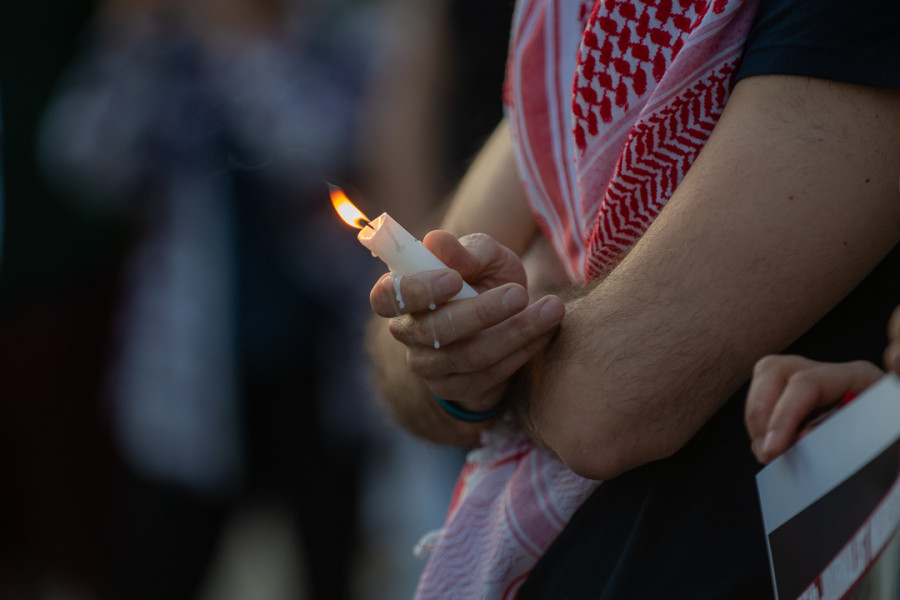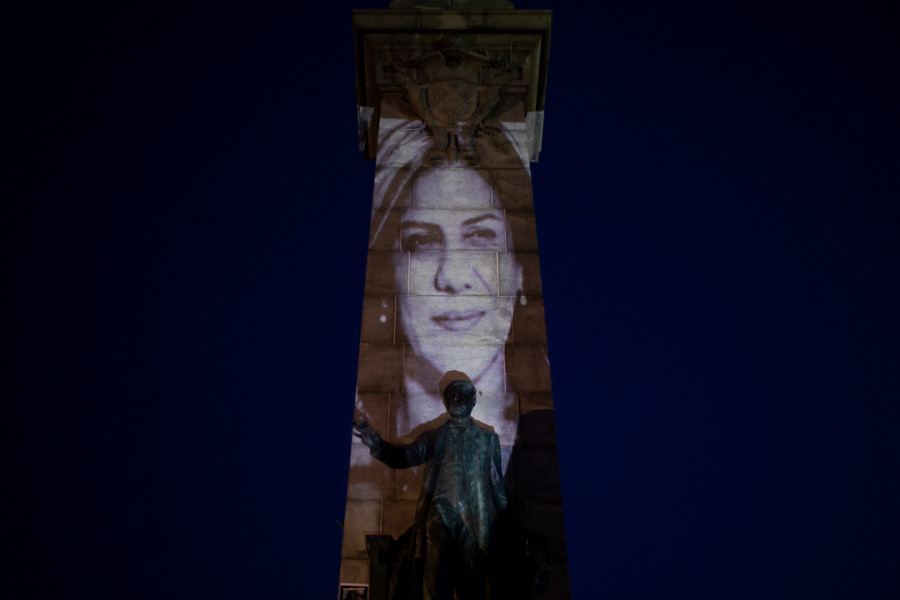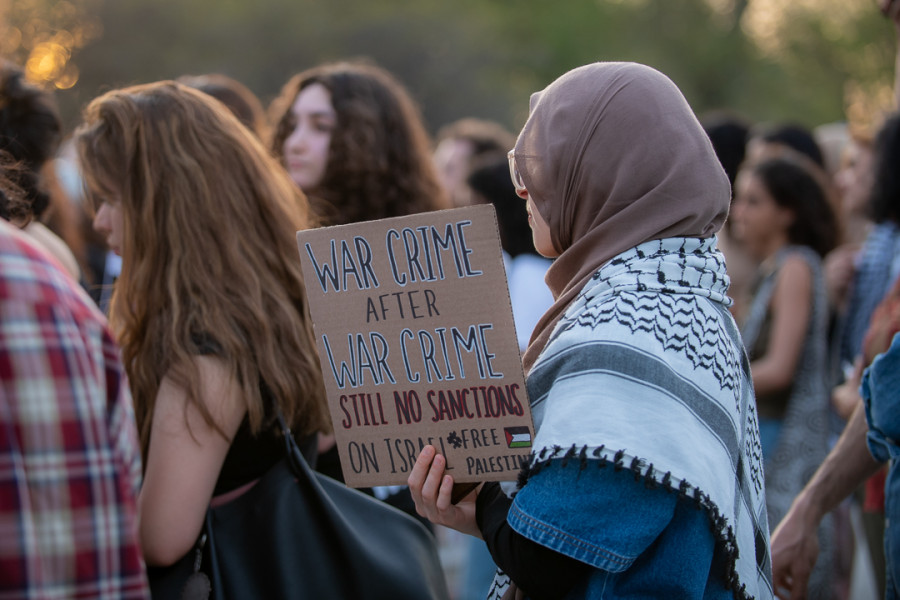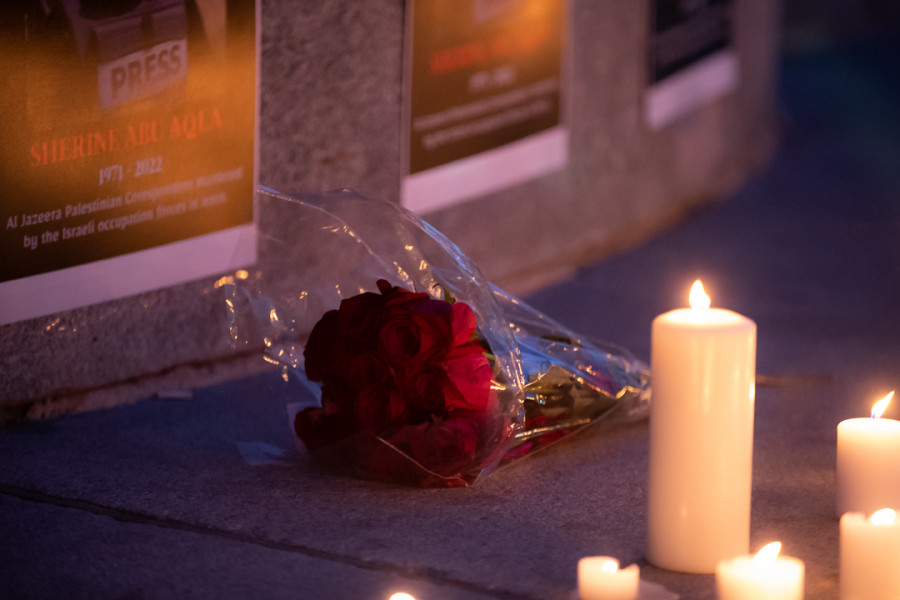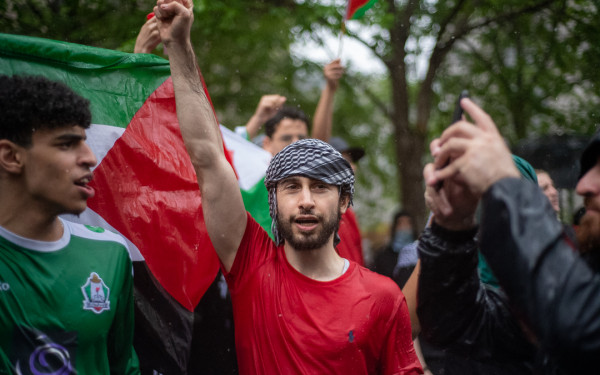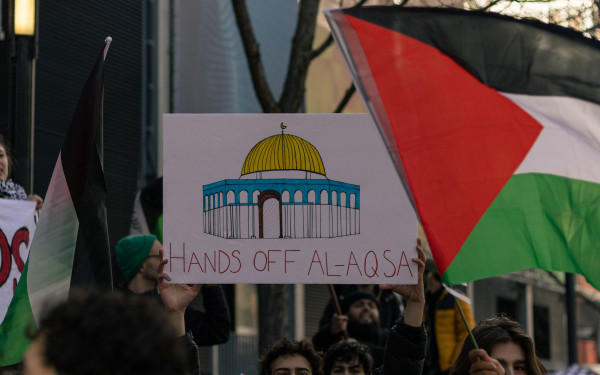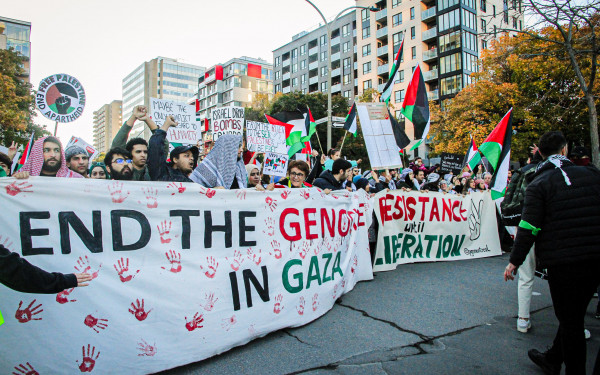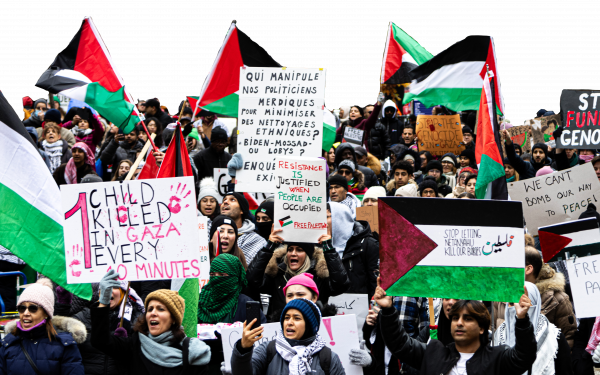A vigil for Shireen Abu Akleh
Montreal mourns the loss of the Palestinian-American journalist in Mount Royal Park
The statue at the Sir George-Étienne Cartier monument was cloaked in the black, white, green, and red of the Palestinian flag on the night of May 12. At its base, candles were lit by Palestinians and members of the Arab diaspora mourning the death of journalist Shireen Abu Akleh.
The Palestinian-American journalist who reported in the occupied territories of Palestine for over 20 years was murdered by an Israeli sniper on May 11. Abu Akleh had been reporting on Israeli soldiers’ raids on a refugee camp in the city of Jenin, located in the occupied West Bank.
Abu Akleh was shot in the head by the Israeli Defense Forces and was on assignment when she was killed. Her team of journalists had identified themselves as press before covering the raid and Abu Akleh wore a press vest and helmet, clearly indicating she was a reporter.
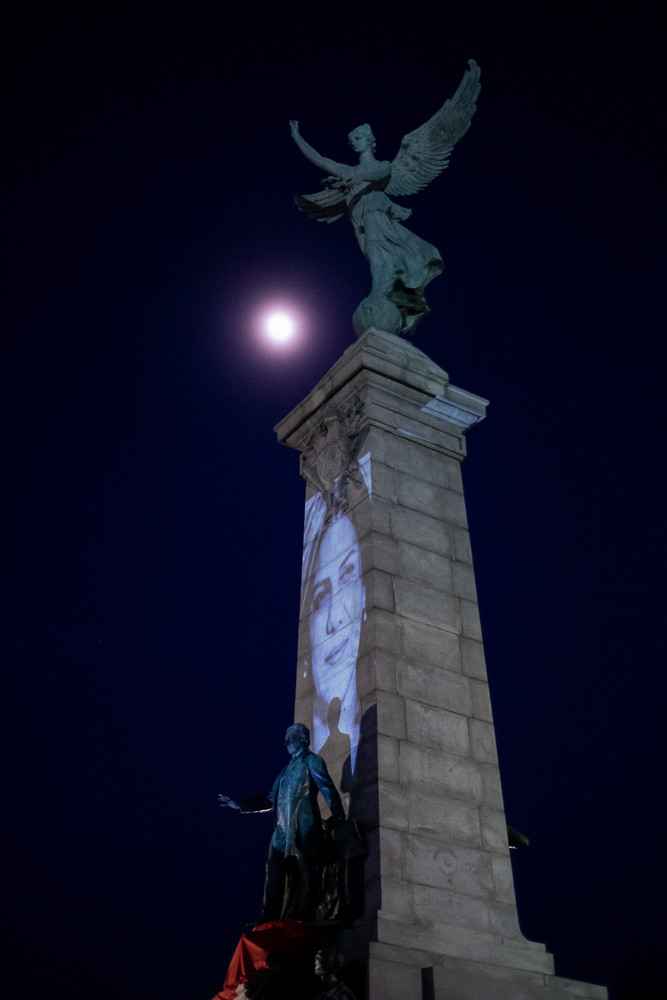
Posters were placed in front of the flag and candles at the vigil. Gathering around the monument, and holding the flags of their homeland, Palestinians grieved the loss of an outspoken member of their community.
Some mourners recited poetry of their country: the sea, olive trees and the return of their sister Shireen. Prayers were offered by Christian and Muslim Palestinians as they delivered their farewells.
Joanna, a Palestinian woman originally from Jenin, came to mourn the death of Abu Akleh. She said the late journalist was killed in cold blood by the Israeli occupation. “[They did this] because they wanted to stop her from spreading the truth all over the world and show the Israeli crimes in the West Bank and Gaza,” she said.
Salem Mousa, a newcomer to Canada originally from the northern Palestinian city of Safed, also attended the vigil to share in the community’s sadness and anger. To a lot of Palestinians, he explained, Abu Akleh was a family member.
“She was a daily gift to our evenings when we turned on the news,” he said. “Every day from 1997 until now, she was on the ground in the frontline and reporting on the truth. This is why we believe she was assassinated and shot.”
“They killed Shireen Abu Akleh yesterday, but no one cares. And no one does anything. What was the crime she committed that deserved this punishment?” — Joanna
The journalist was seen as a big part of the collective memory of Palestinian resistance. One of her most important works was covering the Second Intifada, the Palestinian uprising that took place between 2000 and 2005.
To Mousa, the death of Abu Akleh was also the loss of an important channel of continued news from a principled journalist who was well-rooted in her community. “Every person got used to watching her in the news talking about what's happening and covering the news everywhere in Palestine…it’s sad today,” he said.
Abu Akleh was a voice not only to Palestinians in the occupied territories but to members of the diaspora everywhere.
Sarah Abdelshamy, a member of the Palestinian Youth Movement, highlighted the importance of Abu Akleh’s voice for the diaspora. “Being Palestinian means that you grow up with silence a lot. You grow up with systemic silence. You grow up with media silence,” she said.
“For many Palestinians living outside their homeland, voices like those of Shireen become a glimmer of hope and a symbol of Palestinian resilience,” Abdelshamy said. “[Shireen] entrenched herself in Palestine, in the camps in Jenin, in Arab households in the diaspora, and so her roots are really everywhere.”
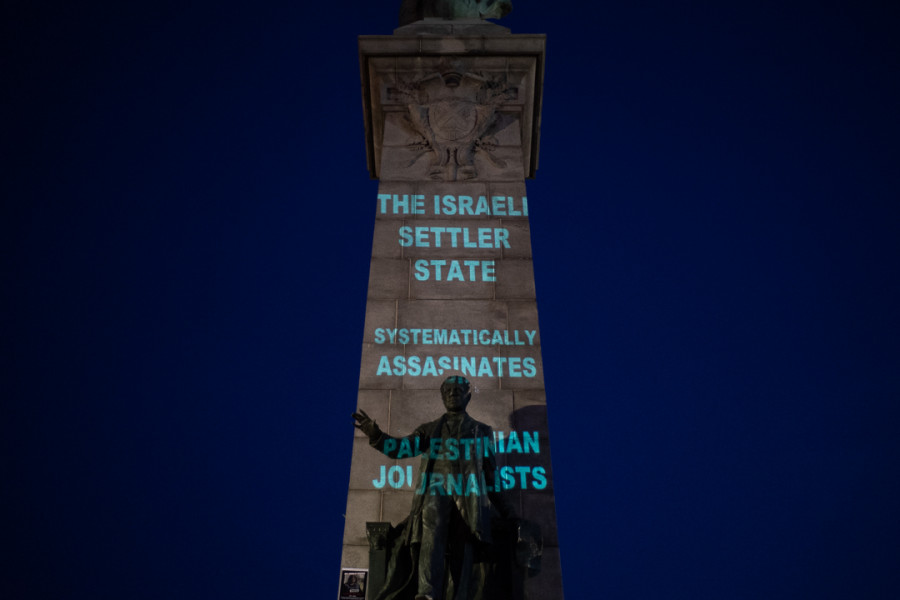
For decades, Palestinian activists have denounced the double-standard and lack of empathy of western news outlets reporting on Israeli human rights abuses against Palestinians. Legacy giants’ whitewashing of Abu Akleh’s murder, notably The New York Times and The Associated Press, took the form of misinformation on clashes and obfuscation of blame towards the Israeli military.
The Israeli authorities claimed that Palestinian gunmen had killed the journalist during clashes with the Israeli Forces. However, many eyewitness reports from Al Jazeera journalists and an AFP photographer who were at the scene say Israeli snipers shot them.
“She was a role model and a good example of a strong journalist and an independent Palestinian woman.” — Salem Mousa
“I just want to add that we are today living in a double standard world. [The press] look at other countries but they just keep silent and blind about what's going on in Palestine,” said Joanna. “They killed Shireen Abu Akleh yesterday, but no one cares. And no one does anything. What was the crime she committed that deserved this punishment?”
After a moment of silence at the vigil, the sun set. Organizers played traditional upbeat dabke music that lightened the mood. They did not only want to commemorate Abu Akleh in death, but celebrate her life in the continuation of resistance. “She was a role model and a good example of a strong journalist and an independent Palestinian woman,” said Mousa.

